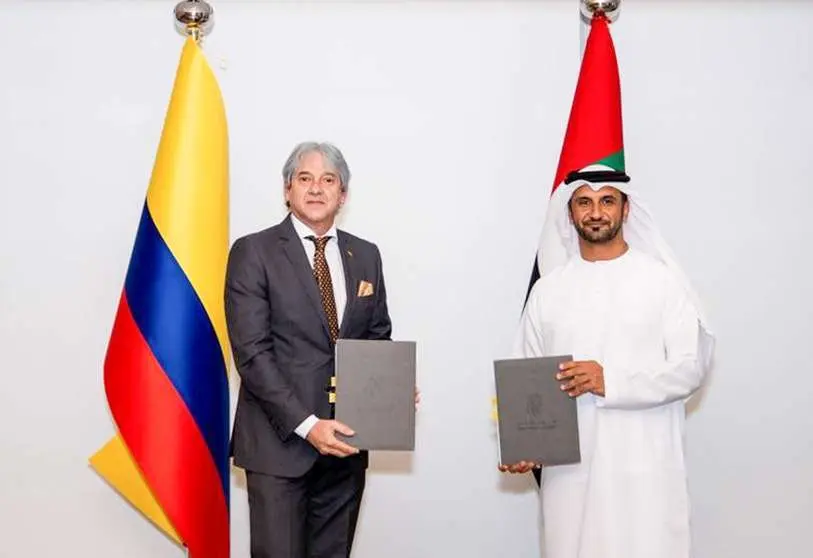Emirates and Colombia join forces to cooperate in energy sector

The United Arab Emirates and Colombia are joining forces in a new partnership. The two countries will seek to promote new energy projects related to hydrogen production. It is a five-year agreement that has been signed by the Abu Dhabi Department of Energy (DoE) and the Colombian Ministry of Mines and Energy that promises good economic benefits for both regions.
The two departments will be tasked with exploring and pursuing hydrogen-related projects and opportunities. The main objective is to partner with companies and provide funding for proposals. They will also push for the use and storage of the resource in addition to other programmes related to large-scale non-conventional renewable energy.
Ahmed al-Rumaithi, DoE undersecretary, announced the new partnership. "The Abu Dhabi Department of Energy is committed to enhancing cooperation and building partnerships with relevant authorities in countries around the world," he said.
For the UAE, hydrogen has become one of its focal points. According to the Gulf state, this resource is key to decarbonising the energy industry and is part of the steps towards energy diversification. The nation aspires to capture around 25% of the world's hydrogen market within a few years thanks to this new emerging market.
"We believe the partnership is a powerful approach to achieving our goals, developing the energy sector, improving energy efficiency and meeting the needs and requirements of the local market for reliable and sustainable energy and water supply now and in the future," continued Al-Rumaithi
The two ministries have also announced that, as part of their agreement, another focus will be on promoting sustainable transport using clean energy sources. In addition, they want these to include advanced energy measurement and control systems as a direct consequence of major technological development. They also want to enable citizens to have access to these types of energy services and will promote these projects through foreign investment.
The UAE is already starting to produce this energy resource. According to the Minister of Energy and Infrastructure, Suhail al-Mazrouei, the UAE has been in talks with many countries since the beginning of this year to start exporting it and thus enter an energy market with great potential.
Since it has started working with hydrogen, Abu Dhabi has already begun to develop new hydrogen policies in order to become a leader in this international market. With a good basis of regulations and standards on how to produce and export it, the country will be able to achieve its economic goals.
It is worth noting that several companies have begun to take an interest in hydrogen production. According to The National News, ADNOC, Mubadala and ADQ have already signed a preliminary agreement to achieve their goals. The institutions have succeeded in creating a strong alliance and announced that they will focus on the production of green and blue low-carbon hydrogen.
According to The National News, blue hydrogen is extracted from natural gas. This is done through a process called methane reforming, in which the carbon obtained is captured and stored. Green hydrogen, on the other hand, maintains a cleaner process of production, as it uses renewable energy such as solar or wind power in most cases. This is done through a method called electrolysis, which decomposes water into dioxygen and hydrogen gas. Thanks to these resources, we can begin to speak of a process of decarbonisation of industries and they are already called substitutes for fossil fuels.
Hydrogen, which is still very new, promises to become a very promising market. According to Bank of America Securities, its commercialisation is estimated at eleven trillion dollars and, by 2050, this industry is expected to generate 2.6 trillion dollars in direct revenues when its production increases six-fold.
Americas Coordinator: José Antonio Sierra.










